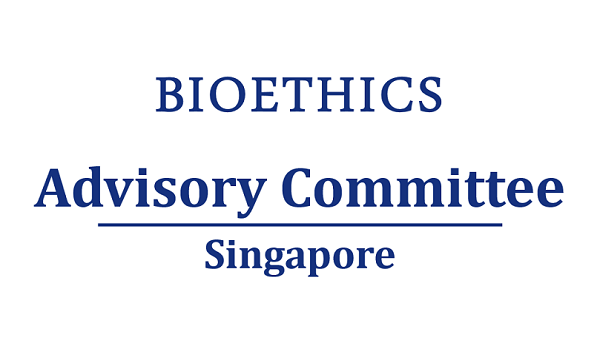
PUBLIC CONSULTATION ON ETHICAL, LEGAL AND SOCIAL ISSUES ARISING FROM MITOCHONDRIAL GENOME REPLACEMENT TECHNOLOGY
The Bioethics Advisory Committee (BAC) has issued a public consultation paper on the ethical, legal and social issues arising from Mitochondrial Genome Replacement Technology (MGRT), and invites public feedback on the potential issues related to the clinical application of this emerging technology in humans. The views of the public and interested organisations will assist the BAC in formulating its recommendation on whether the clinical application of MGRT should, or should not, be permitted in Singapore. The public consultation will take place for eight weeks from 20 April 2018 to 15 June 2018.
Summary of Key Issues
2. MGRT aims to prevent the transmission of mitochondrial disorders from a mother to her child, by replacing abnormal mitochondria with normal mitochondria from a healthy donor, at either the egg or early embryo (zygote) stage. As mitochondria contain genetic material and are passed on by a mother to her child, MGRT may result in germline modification as an inheritable genetic change would be introduced if the resulting child is also female.
3. In 2005, the BAC had recommended in its report on Genetic Testing and Genetic Research that the clinical practice of germline genetic modification should not be allowed for the time being, pending further evidence on the feasibility and safety of its clinical application in humans.
4. There have been significant scientific and policy developments in the field of MGRT internationally in recent years. Notably, the United Kingdom became the first country to legalise the clinical application of MGRT in 2015 and allow clinical trials for two MGRT techniques. With these developments, the BAC considers it timely and important to study the current research involving MGRT, and to review its recommendations on germline genetic modification, particularly in the context of preventing the transmission of serious mitochondrial disorders.
5. The BAC would like to invite the public to contribute their views and feedback on a range of ethical, social and legal issues that could arise from clinical application of MGRT:
How to Participate
6. A copy of the public consultation paper is available here.
7. The BAC will also be organising the following dialogue sessions on the topic of MGRT:
(i) Public dialogue session on 28 April 2018 (Saturday), 2.00pm to 4.00pm, at The Pod, National Library, Level 16 (100 Victoria Street, Singapore 188064).
(ii) Dialogue session with researchers, clinicians and members of institutional ethics review boards, on 10 May 2018 (Thursday), 12.00pm to 2.00pm, at HarbourFront Centre, #09-66 (1 Maritime Square, Singapore 099253).
Those interested to attend can contact the BAC Secretariat at bioethics_singapore@moh.gov.sg.
8. The BAC welcomes feedback on the issues discussed in the consultation paper, or any other aspects of MGRT. All comments should be sent, together with the completed respondent’s form , by 15 June 2018 :
Bioethics Advisory Committee Secretariat
1 Maritime Square
#09-66 HarbourFront Centre
Singapore 099253